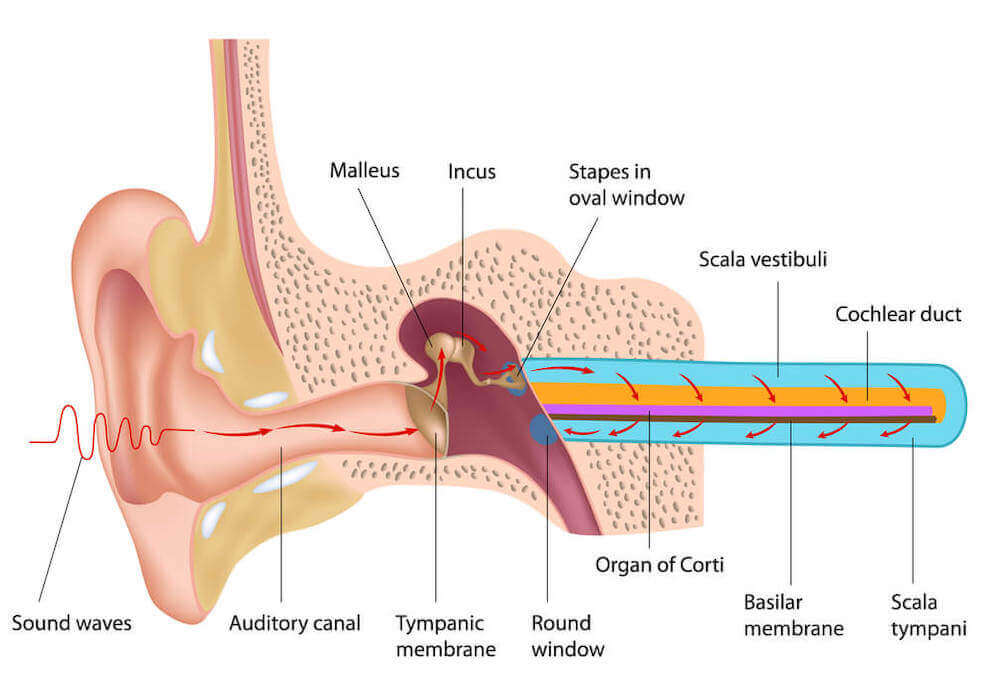Ear Disorders
At ENT & Sleep Specialists, our team can diagnose and treat various health conditions that can affect your ears.

Ear Infection (Otitis Media)
An ear infection, or otitis media, is one of the more common kinds of infections. It can be viral or bacterial, although viral infections are more common.
Otitis media refers to inflammation of the middle ear, which is the part of the ear responsible for balance and hearing. As a result, an infection can cause nausea, dizziness, and trouble hearing, along with pain.
Treatment is usually simple and requires medication. With medication, most ear infections go away in a matter of days. However, an ear infection can spread to the inner ear if left untreated and cause permanent hearing loss. Prompt treatment and diagnosis, therefore, are vital.
Ruptured Eardrum
Also called a perforated eardrum, a ruptured eardrum can result from a traumatic head injury, the insertion of an object into the ear (like a cotton swab), or a sudden change in pressure. The symptoms of a ruptured eardrum are intense and usually involve severe pain and bleeding.
While painful, most of the time, the eardrum will heal on its own over time as long as you keep it clean and take the appropriate antibiotics. Sometimes, surgery is needed if the eardrum doesn’t heal within two months.
Tinnitus (Ringing in the Ears)
Tinnitus, or a ringing in the ears, is a common condition. About one in ten people experience tinnitus when in an otherwise quiet environment.
When a patient perceives a ringing sound that isn’t there, subjective tinnitus is often a symptom of hearing loss, either due to age, disease, medication, or acoustic trauma. Objective tinnitus, on the other hand, is far rarer but can indicate a more serious issue.
Objective tinnitus is when a patient hears a sound in their ear that’s coming from vascular flow in the body. It can be caused by a tumor in the middle ear, irregular blood flow, or an infectious disease.
For this reason, it’s a good idea to get your tinnitus checked out by an ENT specialist to determine if it’s subjective or objective.
External Ear Infections or Swimmer’s Ear (Otitis Externa)
Like a middle ear infection, an external ear infection called otitis externa, or swimmer’s ear can be caused by a virus or bacteria. But an external infection is more often bacterial.
Rarely it can also be fungal. The most common treatments are topical antibiotics and corticosteroids.
Ear Wax (Cerumen)
Also called cerumen, ear wax is a substance that naturally forms in the ear. Sometimes, it can block the ear canal when it builds up, causing trouble hearing and even infection.
Over-the-counter solvents can soften it, but the safest method of removal is a suction tip used by an ENT or medical professional.
Autoimmune Inner Ear Disease (AIED)
AIED is a rare disease where the body’s immune system attacks the inner ear. It can lead to hearing loss.
The most common treatments are steroids and immunosuppressants.
Cholesteatoma
Cholesteatoma is a cyst that forms in the middle ear. It often occurs as a result of repeat ear infections.
Surgery is required to remove the cyst and leaving it untreated can cause deafness and other serious illnesses.
Dizziness
Vertigo, or just general dizziness, is a symptom of many of the conditions listed above. Your middle ear is responsible for balance, so when it’s infected or damaged, you may feel dizzy.
See a doctor about your vertigo so they can find the root cause and treat it appropriately.
Have questions about how to keep your ears healthy? Schedule an appointment at ENT & Sleep Specialists in Clinton, MD, today!





